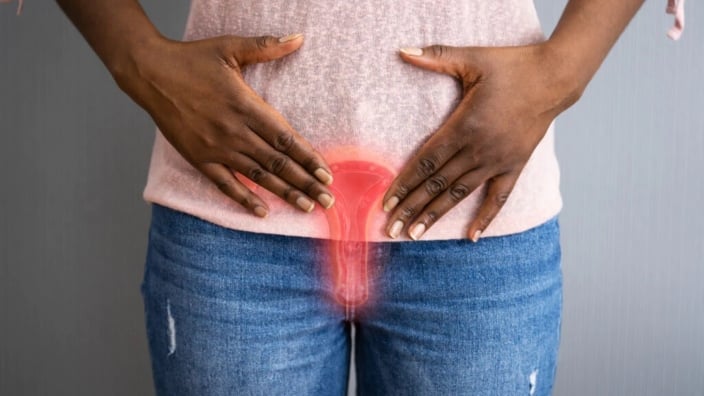How do I clean … down there? A gynecologist’s guide to feminine care
Who says we're not already fresh? Ladies, here's what you need to know about caring for your vagina and vulva.
Walking down your local pharmacy aisle, there are tons of different products marketed to enhance a woman’s “freshness.” But, is this really necessary? As a gynecologist, one of the most common complaints I see in my office is vaginal itching or odor. Use of these over-the-counter products can actually worsen bothersome vaginal symptoms rather than help. So, what’s a girl to do?
Feminine hygiene has typically been taboo or a shameful topic in our culture. Even the use of the term “feminine hygiene” has been put in play to avoid the actual terminology of the female anatomy. For as long as we could remember, women were expected to handle things like menstrual cycles and vaginal problems in the privacy of their own bathrooms.
However, it’s a new dawn, and women are more empowered to take ownership of their bodies. Even still, it can be confusing to see the various types of products marketed to improve a women’s “freshness.” But who said we aren’t already fresh?

The vagina and vulva are designed to clean themselves. It does that with vaginal discharge. So, what is considered normal discharge? A woman’s discharge is typically clear or a whitish milky color. It may change at different times of the month, depending on where you are in your cycle. Around the time of ovulation, it is thin and sticky, like egg white.
After ovulation, it tends to be creamy, similar to lotion. Soon after your menstrual cycle, there is the least amount of discharge. Abnormal discharge is typically increased in amount, yellow or green, and possibly associated with itching, burning, irritation or a foul odor.
So, how do you clean down there? All you need is water and your hands. The excess soap that you use on your body can be used to clean the hair-bearing areas of the vulva, but avoid any soap getting inside of the vagina. Vaginal tissue is very sensitive and can be easily irritated. This can also lead to vaginitis, which is the development of yeast or bacteria overgrowth.
What about washes marketed for vaginal cleanliness? When in doubt, just say no. Often times, those kinds of soaps are too harsh for the sensitive skin of the vagina and can just make irritation and bothersome symptoms worse. When picking a body wash, keep it boring. Avoid scented or exfoliating soaps. Instead, stick to mild, gentle cleansers like Dove, Cetaphil or Aveeno.
So, what’s the best way to take care of your lady parts? Avoid douching and unnecessary feminine cleaners, use unscented tampons/pads, stick to mild soaps and body washes and wear loose cotton underwear.

Dr. Renita White is a board-certified obstetrician/gynecologist and women’s health expert. She currently practices at Georgia Obstetrics and Gynecology in Atlanta, Georgia. She earned her undergraduate degree at Duke University. She then went on to serve as a Congressional Hunger Fellow, where she focused on the impact of nutrition and food disparities on chronic illness. She earned her medical degree at The Ohio State University. She then moved back to her home state of Georgia to do her residency in obstetrics and gynecology at Emory University. She cares for women all over the metro Atlanta area. Dr. White is the co-host of Cradle and All, a podcast about pregnancy, motherhood, and womanhood. In her spare time, she enjoys traveling and spending time with her husband and two sons. You can follow her on Instagram at @renitawhitemd.
Have you subscribed to theGrio podcasts “Dear Culture” or “Acting Up?” Download our newest episodes now!
TheGrio is now on Apple TV, Amazon Fire and Roku. Download theGrio.com today!

